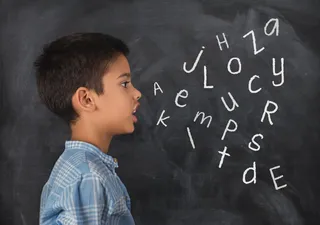Is AI creativity's friend or foe? Researchers explore what children think of AI
Researchers have added to the debate around creativity and AI by seeing how children interact with AI for creative tasks. What do the children think?

Artificial Intelligence (AI) models such as those by OpenAI and Google have been rapidly changing. Some of these models create AI-generated art, some of which has even won art and photography competitions. Yet, there is controversy around AI generated art especially when it involves using other creators’ works.
This brought up concerns for some that AI could replace artists – but whether it really can help or hinder creativity is open to question. Little has been known to support either side of the argument, especially in relation to children and their education.
Seeing how children interacted with AI
Researchers from the University of Washington wanted to find out how AI affects creative traits in children. They recruited 12 kids in the Seattle area of the United States aged seven to 13, to see how their creative process might have changed when introduced to AI technologies. They were also interested in children's perceptions of the AI tools and how they used them creatively.
The researchers published their observations on 14 May at Conference on Human Factors in Computing Systems. The team were interested in the following research questions:
- How do children in co-design workshops perceive GenAI tools and their usage for creative works?
- How do children navigate the creative process while using GenAI tools?
- How might these interactions support their confidence in their ability to create?
The tools assisted the children in their creative practices in meaningful ways, they researchers said, although they might have needed some assistance from adults or peers along the way.
The researchers concluded the study to say “shows that children construct knowledge, adapt their creative processes, consider their knowledge of domains, and are influenced by creative tasks/environments.”
The children faced some limitations and challenges when using the tools, usually because of the model not being tailored to the particular child’s existing knowledge. For example, two children struggled to evaluate the chord progression produced for a song, without being familiar of that music artist.
This implies that pre–training large language models (LLMs) to fit the user’s experience, interests and knowledge can help to boost children’s confidence at using these tools. One child asked ChatGPT requested the system to talk like characters from Star Wars to help him make a story about this much-loved franchise, having said: “I want it to talk like Darth Vader.”
Children might have felt more confident and creative when they entered prompts related to their direct interests. This may have made it a much more enjoyable and perhaps creative experience for them. For example, one child wrote a poem about their game Minecraft, and another Zelda, which they were familiar with. By prompting it further, to combine the two poems in certain ways, they became more familiar with the nuances of the system and what it could do to help them.
AI supports creative endeavours, these researchers say
Frich et al.’s literature review work mentioned that creativity support tools on digital systems, such as in the case of AI models, are designed to positively influence the creative process.
The study suggests AI tools used do seem to influence children’s abilities to create in different ways. Ultimately, the research team argue for generative AI being a support tool for creativity, not a replacement for creativity itself. This could offer a positive outlook in a space of mixed views while AI development rapidly accelerates.
Source of the news:
"I want it to talk like Darth Vader": Helping Children Construct Creative Self-Efficacy with Generative AI. CHI '24: Proceedings of the CHI Conference on Human Factors in Computing Systems. May 2024. Article No.: 117Pages 1–18. DOI: https://doi.org/10.1145/3613904.3642492








